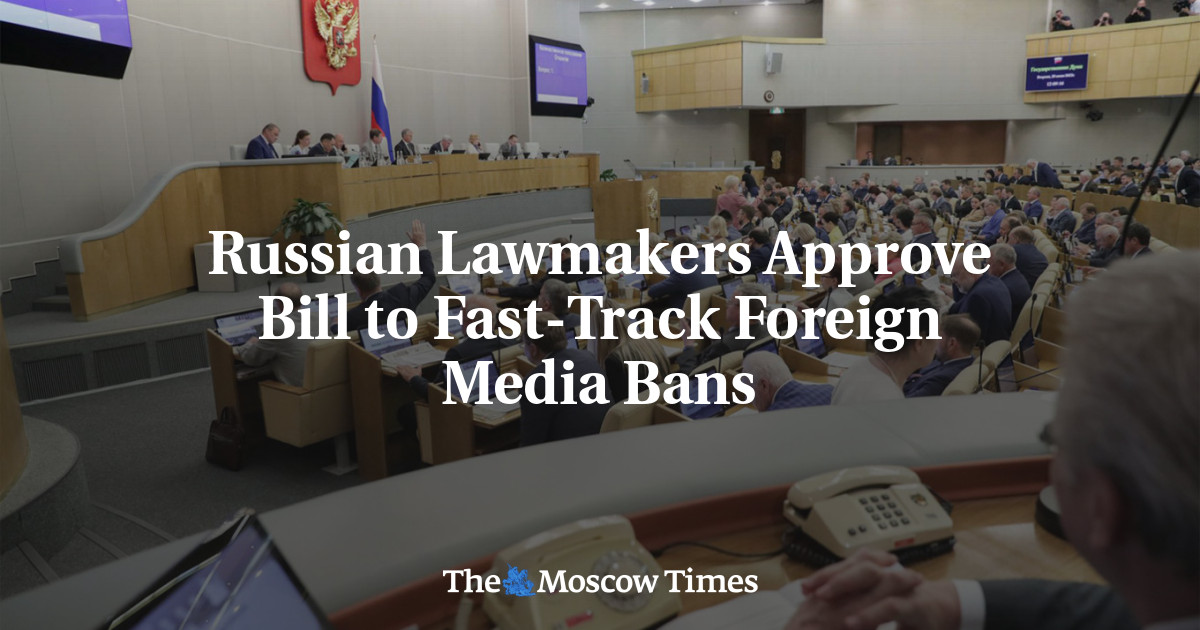
Russian lawmakers Thursday approved legislation allowing officials to block foreign news outlets in retaliation for clampdowns against Russian state media abroad.
The bill gives Russia’s Prosecutor General the right to ban foreign outlets without court approval if another government is found carrying out “hostile actions against Russian media abroad.”
The new measures also give officials the power to suspend the work of any news outlet for up to three months if they are accused of spreading information deemed dangerous, “disrespectful” to the Russian state or constitution, or “aimed at discrediting” Russia’s army.
The law states that suspended media outlets may resume work after removing any “prohibited information,” while warning that repeat offenders will be shut down.
The bill, which was adopted by Russia’s lower house of parliament, the State Duma, must now be approved by the upper house and signed by Russian President Vladimir Putin.
In June, Russia blacklisted dozens of British and Australian journalists, including prominent reporters and editors from the BBC, The Financial Times and The Guardian.
Moscow also threatened to strip the accreditations of U.S. journalists in the country in response to the perceived poor treatment of Russian reporters in the United States.
Washington blocked three of Russia’s state-run TV channels in May, targeting Channel One, Rossiya 1 and NTV in response to Moscow’s war in Ukraine. The European Union also blacklisted several Russian state-controlled outlets, including RT, Sputnik, Rossiya 24, and Rossiya RTR.
At least 3,000 websites and independent media outlets have been blocked or censored in Russia since Moscow invaded Ukraine on Feb. 24, according to the online freedom organization Roskomsvoboda.